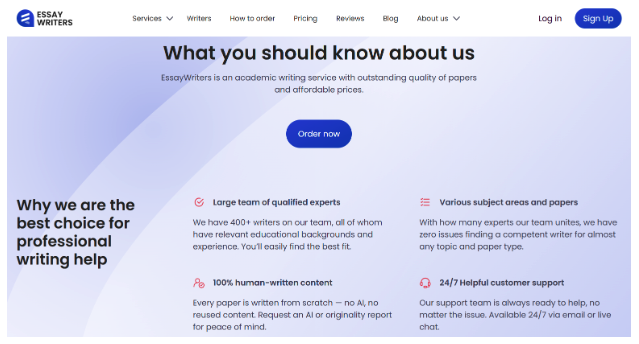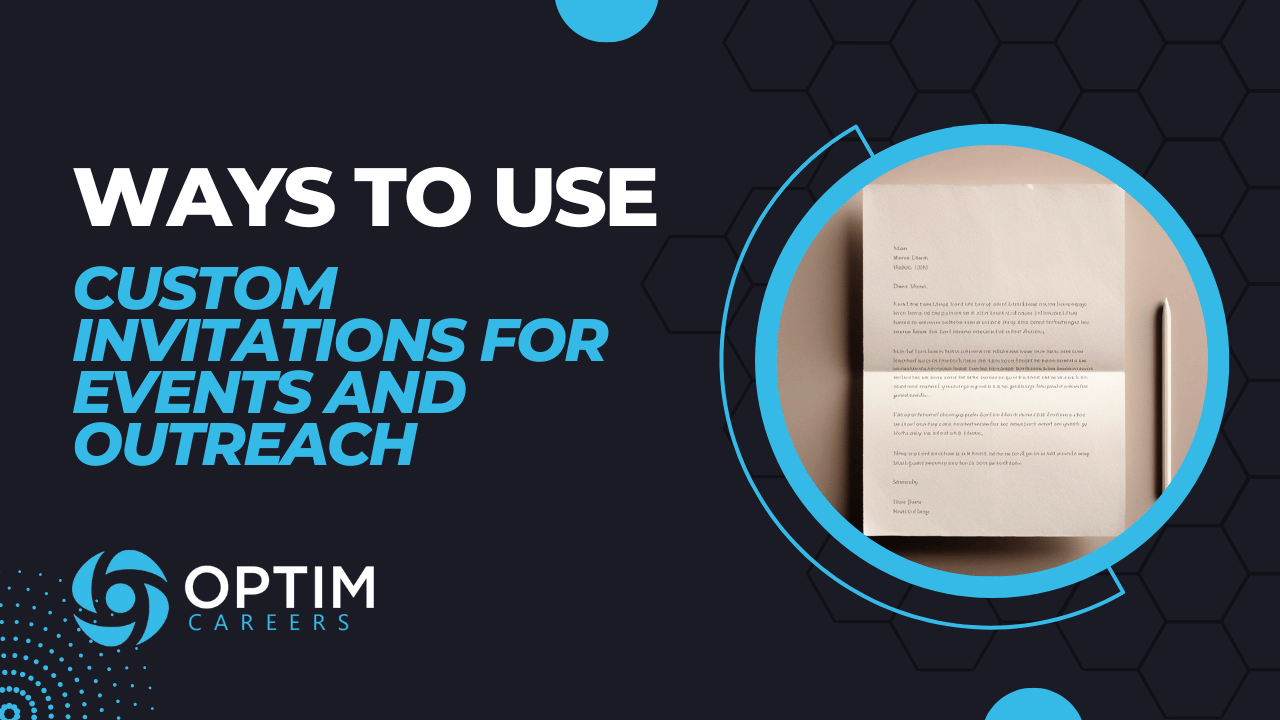What Jobs Am I Qualified For [How to Find the Right Jobs]
While some coaches will tell you to shoot your shot, I tend to take a more practical approach to job hunting and career advancement. Sure, stretch yourself and take a chance now and then, but also focus on jobs that are most likely to happen for you. As I like to say, stay closest to the hire.
The problem is no one has ever taught us how to do this. And so many of us put ourselves in narrowly defined boxes or end up thinking we’re being strategic when we’re not. If you follow the steps in this article, I’m confident you will uncover new jobs that you could apply for and come up with a better targeting system that will produce more interviews for you.
In this article, I’m going to discuss:
Why you should focus on qualifications in a job search.
Why there is no such thing as a perfect candidate or job.
How many qualifications you really need in order to be qualified for a job.
What it means to be qualified for a job.
And, some methods to figure out which jobs you may be best suited for.
What Jobs Should I Apply For
Staying closest to the hire, meaning you conduct job search activities with companies that are most likely to hire you, is really important. By focusing on jobs that you are qualified for you will:
Lower your stress level
Have less frustration
End up with more interviews and phone calls (which feels good)
Set yourself up for success when you start a new job
End up working less because you won’t be spending your free time learning skills that you were supposed to already have
So if all that sounds nice, keep reading.
Is There a Perfect Job Match For You
Before we dig into how to find the right jobs that you are qualified for, it’s important to talk about perfection. If you’re looking for the perfect job match, I’ve got news for you. There is no such thing.
In all my years of recruiting, I’ve never met a perfect candidate or found a perfect job for someone. It simply doesn’t exist. There is going to be something that you don’t have experience with and there is going to be something the job will demand from you that you won’t enjoy that much. That’s just life.
This doesn’t mean that you shouldn’t focus on jobs you are qualified for, but aiming for perfection is a recipe for frustration.
How Many Qualifications Do I Need
We’ve established that you’re not looking for a perfect match, but what are you looking for? I’ve seen some experts say if you have 70% of the qualifications, apply for the job. I’ve seen others say if you have 90% of the qualifications, apply.
Others will tell you that it depends on the job market and there is some truth to that. Your competition does matter. If you’re competing in a tight job market with individuals who have years of experience on you, that’s a hard sell for any hiring manager. If employers have trouble finding the talent they need, they’re more likely to be flexible and train.
Instead of focusing on how many qualifications you have, focus on the important ones. I’ve always been given two to three must-have qualifications for every job opening I’ve ever worked on. I can’t think of any hiring manager who has told me (the recruiter) that there aren’t any absolute must-haves.
It’s not always easy to tell which qualifications are a must-have when reading job listings, but here are some tips.
Repetitive Items
If a job listing mentions the same thing multiple times, that’s a good indication that it’s important and may be a required skill or experience.
Big Picture Statements
The best job advertisements open with an overall picture of the company and how this role fits into their goals. Those overarching statements are a great place to look for important qualifications that the hiring team is looking for.
Recruiters
If you have the privilege of working with a recruiter, ask them. Good recruiters know what is required and what isn’t. In the past, I had trusted candidates who would stay in contact with me and I with them. They had built a relationship with me and had desired skills on the market. Many times they would ask me about jobs I was working on.
The key here is that you have to invest in a relationship so the recruiter is likely to help you. Spam messaging every recruiter on the planet for information is likely to lead nowhere.
Qualifications Sections
Read the qualifications section of the job listing. Almost every job has one. More sophisticated job postings will list a required qualifications and a preferred qualifications section. If the market is competitive, you should have all of the required and most of the preferred. If it’s not, you can most likely bet on just having the required qualifications.
If you notice there are items in the job duties and in the required qualifications, that should be a sign that it could be a critical item you need.
What Does It Mean to Be Qualified
That question and the answer mean a lot of different things to a lot of different people. But in general, from a recruiting perspective, it means you have all of the key qualifications. In a tight job market, it may also mean you have a majority of the preferred qualifications as well.
Different Types of Qualifications
The following could be key qualifications that are deal breakers for hiring teams:
Education
Licenses or Certifications
Experience Level (usually listed as years of experience, but that’s only because it’s the easiest way to standardize the question)
Industry Experience
Knowledge
How to Find Jobs I’m Qualified For
Now that we’ve established what qualifications look like and why they are important, let’s dive into why you’re really here - how to find the jobs that you could be qualified for. I’m going to take you through some common exercises I perform with coaching clients that help them discover what jobs they could apply for - many jobs they haven’t thought of yet.
Doing these exercises before you do anything else in a job search will lead to a more rewarding job search experience.
Know Your Most Marketable Place
First things first. You need to know where your most marketable place in the job market is. Start by drawing two circles on a piece of paper and overlap them in the middle. The circle on your left is the job functions you have performed. The circle on your right is the industry expertise you possess. Where they overlap in the middle is your most marketable space.
For example, if you were an Enablement Specialist in the retail space and you wanted a job tomorrow, you would want to target enablement jobs in retail.
But for many of us, that isn’t an option. We don’t want to do the same job. Other times, there are no jobs in our industry because of economic factors out of our control. In that case, it’s important to keep one of your circles intact. Think of it like an anchor.
Many people think it’s easier to switch industries, but it’s actually easier to switch job titles within an industry and this is often overlooked.
The key here is to keep one of your anchors as you pivot into something new. Oftentimes it is easier to keep the industry circle.
This doesn’t mean that you have to stay in the same industry but think of it as who would value your industry expertise. I’ll work through a scenario to help make sense of this.
Let’s say you are in a retail job as a cashier. You could target jobs with companies that sell POS (point of sales) systems. You understand the pain points of the people who use them and have a lot of inside information from the customer level that could make you valuable. That information could make you more valuable in a tech support role than someone else with customer support experience outside of retail who has never used a POS system.
If you worked in a grocery store, you may also find it easier to pivot into a food and beverage company or a distributor who supplies a grocery store. You could potentially target account management roles with a supplier. You can leverage your industry knowledge to do this because you understand customer buying habits from working at the store level. You know what promotions work and which ones don’t.
Again, it’s not about staying in your industry, rather it’s about who values your industry knowledge.
Reverse Engineer Your Resume
Another way to identify jobs that you may be qualified for is to take skills and job functions from your resume and conduct a boolean search on a major job board to uncover potential job titles.
To do this, take key skills and type them into a large job board like Indeed. You want a job board like Indeed because it has a lot of jobs listed on its site. While there are others you can use, I prefer Indeed because they scrape jobs from the web in addition to companies who post directly on their site. Google Jobs is also another great source for this exercise.
Be specific on the skills you type in. Don’t type “marketing”. That is too broad and won’t help you much. Instead, start by trying “email marketing”. See what comes up. If the search results are too large, you can continue to refine it more narrowly. If the search results are too few, broaden your terms.
Make sure you use boolean logic and put phrases in quotations so it searches job descriptions for the exact phrase you want. What this does is search through job descriptions for keywords.
Once you have a healthy set of results you can start looking through the rest of the job listings to see how closely the other responsibilities and qualifications align with your background.
You may find some new job titles that you hadn’t known about that could be a good fit for your skills and experiences.
Examine the Market
Another consideration is the current job market for the role and industry you may be targeting. If you haven’t looked for a job recently, I can tell you right now that you’re going to invest a lot of time and effort into finding a new job these days. The time it takes to hire a new employee has hit a new all-time high and isn’t expected to get any better anytime soon (HRD).
It’s a good idea to have a clear picture of how much opportunity exists and how fierce the competition is in your target jobs and industries. This will help you make smart decisions that align with your job search goals. The last thing you want to do is spend a year targeting a job or industry only to realize that the number of opportunities keeps shrinking and the number of people seeking those jobs is increasing.
To do this, type your target job title and location into a major job board or aggregator like Indeed again. Filter it by 30 days. Filter it by the last 7 days. How many jobs came up? Is there enough to apply to? If there were only two jobs listed in the past month, it’s going to be hard to land one of those jobs simply because the opportunity is limited.
It’s also important to remember that as you climb in responsibility, there tend to be fewer jobs. You don’t need 20 managers for 20 employees. You probably only need one. So as you climb, you’ll find there are fewer jobs.
You can also look at industry publication data for 5-year or 10-year outlooks, but I find these often fairly subjective. After all, no one can predict when a global pandemic or a war is going to break out and change everything.
Know Your Top Employers
Today you can go to Google and search “top employers in (city)” for any major metropolitan area and it will serve up a list of which employers employ the most people in your area. This is a good exercise to find out who may hire the most often. While there is not a direct correlation between employee size and hiring activity, many times you can count on them having more openings, more frequently.
Take that list of employers and go to their websites. They most likely have a careers page. You can then spend some time exploring what jobs they’ve posted on their own website in the past few months.
If you find a job that aligns with your background, you can add this company to a target list and start building connections with key people who work there to increase your odds of getting an interview the next time a role opens up. If you do it well enough, you may even know when a job is going to open up before it is even advertised.
Career Assessments
Career One Stop has a skills matcher assessment that asks you questions, analyzes your responses, and then tells you what your career options could be. While I find tools like this of little help, they can be a good place for beginners to start looking for ideas. When I tried the assessment it gave me 150 careers that matched my skills profile. That’s way too many to be helpful. But it may give you ideas that you haven’t thought of.
Next Steps to Obtain a Job You’re Qualified For
While it’s best to do these things before you need a job (planning is everything), it’s still a good idea to pause for a minute and work through these exercises even if you’re unemployed and need a job tomorrow. This process of career planning and mapping will save you time in the long run so it’s best not to skip it.
Once you’ve been through the exploratory exercises above, let’s discuss what comes next.
Fill Skill Gaps
As you reviewed potential job matches that included key skills that you already possess, you probably noticed that they include some skills that you don’t have. Make a list of these skills and come up with a plan to obtain them.
There are many ways to obtain and practice new skills besides on-the-job experience. You can find almost anything on the internet these days. You do need to be careful and vet your sources, but you can obtain knowledge through reading. In many instances, you can apply that knowledge on your own.
For example, when I first learned about SEO and marketing, I built my own blog and today if I wanted to, I could prove to others that I’m qualified for an SEO job. When I needed to learn Salesforce because so many sales roles I wanted required it, I accessed a free trial of the software and taught myself how to use it with their Youtube tutorials.
There are many ways to obtain experience. You could start an adult internship, join an upskilling program like Aspireship, or do some freelancing work. I’ve even offered free work when I could in the past to gain the necessary experience for a pivot. I’m not saying you have to do that and many can’t afford to do that, but you could.
The key is you have to find ways to fill in your skill gaps.
Talk to People Doing the Job
Many times we have preconceived notions of what a job is like thanks to Hollywood and the glamorization of some jobs. Many times those notions are flat-out wrong. Find people who are doing the job you’re considering targeting and talk to them. Make sure you’re interested in the job itself and not the idea of the job. LinkedIn is a great source to find people doing the work you’re considering targeting next.
You can search a certain number of profiles for free each month without paying, or you can unlock their premium features if you need more bandwidth. When you find someone, you could send them a simple message like the one below. And don’t forget to send them a gift card for a coffee or something as a way to say thank you afterward.
Cole,
I saw you were an Account Manager at PBs Jam and I’m currently considering exploring account management roles at similar food and beverage manufacturers. I know you’re probably incredibly busy, but would you be open to a quick chat where I could ask some questions about the job from your perspective? I’m trying to decide if this is the right job for me and I would be so appreciative of any insights you could share.
Thanks in advance,
Bob
Talking to people in the industry and the job function you are targeting will also help you start to speak their language. Most job families have similar KPIs (key performance indicators), buzzwords, and a unique way of looking at things. You need to know those things and incorporate them into your resume, emails, and interviews. Talking to people is the best way to do this.
Find Others Who Have Made the Same Career Pivot
Similar to my previous commentary, when you’re looking for people who are doing the job you’re considering next, see if you can find people who used to work in the job you hold today.
These people know what it takes, first-hand, to leave the job you’re in and find the job you want to be in. They’ve done it before and most likely can offer you insight about what worked for them.
Furthermore, as you’re job searching you can target companies that have a track record of hiring people like you. If you notice they have a lot of employees who used to work in your industry or job function now working for them, that is a great sign it’s worth your time to target that company and apply for jobs with them. You can look up the company on LinkedIn, view their employees, and take a look at their backgrounds.
Write a Segmented Master Resume
Notice that I mention writing your resume at the end of this article. That’s because I don’t think anyone should waste time on a resume until they have a solid job search targeting strategy.
Resumes shouldn’t be about you, they should be about the person reading them. I know that may sound odd the first time you read it. But nobody wants to read a documentary about us. We’re not Queen Elizabeth II and we’re just not that exciting to read about. What they do want to read about is the fact that you understand the problems they face and that you are qualified to help them solve those problems.
When you write a resume that way, you’ll see that it can change drastically depending on who is going to be reading this. Different industries have different problems. Different roles solve different problems.
If you haven’t written a resume in some time or writing this way isn’t a part of your everyday skillset, I highly suggest you find help.
You can start with my free resume guides.
Once you’ve read through those, it’s often advantageous to work with a resume writer or join a coaching program that can give you feedback before you start using it.
Consider Bridge Jobs
Bridge jobs are often referenced for people about to enter retirement, but they can be for anyone at any age. A bridge job is simply a job that provides you the time and money to navigate your way to the actual job you want to do next. It’s something that usually requires minimal effort on your part, but you get paid and have time to work on closing skill gaps, applying for jobs, and networking with people in your target industry.
This could take the shape of a part-time job, a warehouse job, or a job at Starbucks. If you’re unemployed, bridge jobs will give you more runway to work toward the job you really want. Some bridge jobs may even help you build some skills and experiences that are relevant to your next role.
There is no shame in taking a bridge job while searching for your next long-term position.
What Jobs Am I Qualified For Recommended Reading
Is Freelancing Worth It During a Job Search
Targeted Resume: The Definitive Guide
Cole Sperry has been a recruiter and resume writer since 2015, working with tens of thousands of job seekers, and hundreds of employers. Today Cole runs a boutique advisory firm consulting with dozens of recruiting firms and is the Managing Editor at OptimCareers.com.
















